MODERN GENRE THEORY
________________
Edited and Introduced by
DAVID DUFF

First published 2000 by Pearson Education Limited
Published 2014 by Routledge
2 Park Square, Milton Park, Abingdon, Oxon OX14 4RN
711 Third Avenue, New York, NY 10017, USA
Routledge is an imprint of the Taylor & Francis Group, an informa business
Copyright 2000, Taylor & Francis.
All rights reserved. No part of this book may be reprinted or reproduced or utilised in any form or by any electronic, mechanical, or other means, now known or hereafter invented, including photocopying and recording, or in any information storage or retrieval system, without permission in writing from the publishers.
Notices
Knowledge and best practice in this field are constantly changing. As new research and experience broaden our understanding, changes in research methods, professional practices, or medical treatment may become necessary.
Practitioners and researchers must always rely on their own experience and knowledge in evaluating and using any information, methods, compounds, or experiments described herein. In using such information or methods they should be mindful of their own safety and the safety of others, including parties for whom they have a professional responsibility.
To the fullest extent of the law, neither the Publisher nor the authors, contributors, or editors, assume any liability for any injury and/or damage to persons or property as a matter of products liability, negligence or otherwise, or from any use or operation of any methods, products, instructions, or ideas contained in the material herein.
ISBN 13: 978-0-582-36805-7 (pbk)
British Library Cataloguing-in-Publication Data
A catalogue record for this book is available from the British Library
Library of Congress Cataloging-in-Publication Data
A catalog record for this book is available from the Library of Congress, USA
Modem genre theory / edited and introduced by David Duff.
p. cm.
Includes bibliographical references and index.
Contents: Criticism of the theory of artistic and literary kinds / Benedetto Croce The literary fact / Yury Tynyanov Fairy tale transformations / Vladimir Propp Epic and novel / Mikhail Bakhtin The problem of speech genres / Mikhail Bakhtin The mythos of summer : romance / Northrop Frye Royal genres / Ireneusz Opacki Theory of genres and medieval literature / Hans Robert Jauss Genre-systems and the functions of literature / Rosalie Colie Magical narratives / Frederic Jameson The origin of genres / Tzvetan Todorov The architext / Gerard Genette The law of genre / Jacques Derrida Transformations of genre / Alastair Fowler Genre and gender / Mary Eagleton.
ISBN 0-582-36806-5. ISBN 0-582-36805-7 (pbk.)
1. LiteratureHistory and criticismTheory, etc. 2. Literary form. I. Duff, David, 1962
PN45.5.M56 1999
Set by 35 in 9 /11
/11 Palatino
Palatino
LONGMAN CRITICAL READERS
General Editor:
STAN SMITH, Research Professor in Literary Studies, Nottingham Trent University
Titles available:
MARY EAGLETON, Feminist Literary Criticism
GARY WALLER, Shakespeares Comedies
JOHN DRAKAKIS, Shakespearean Tragedy
RICHARD WILSON AND RICHARD DUTTON, New Historicism and Renaissance Drama
PETER WIDDOWSON, D.H. Lawrence
PETER BROOKER, Modernism/Postmodernism
RACHEL BOWLBY, Virginia Woolf
FRANCIS MULHERN, Contemporary Marxist Literary Criticism
ANNABEL PATTERSON, John Milton
CYNTHIA CHASE, Romanticism
MICHAEL ONEILL, Shelley
STEPHANIE TRIGG, Medieval English Poetry
ANTONY EASTHOPE, Contemporary Film Theory
TERRY EAGLETON, Ideology
MAUD ELLMANN, Psychoanalytic Literary Criticism
ANDREW BENNETT, Readers and Reading
MARK CURRIE, Metafiction
BREAN HAMMOND, Pope
STEVEN CONNOR, Charles Dickens
REBECCA STOTT, Tennyson
LYN PYKETT, Reading Fin de Sicle Fictions
ANDREW HADFIELD, Edmund Spenser
SUSANA ONEGA AND JOS ANGEL GARCA LANDA, Narratology: An Introduction
TESS COSSLETT, Victorian Women Poets
BART MOORE-GILBERT, GARETH STANTON AND WILLY MALEY, Postcolonial Criticism
ANITA PACHECO, Early Women Writers
JOHN DRAKAKIS AND NAOMI CONN LIEBLER, Tragedy
ANDREW MICHAEL ROBERTS, Joseph Conrad
JOHN LUCAS, William Blake
LOIS PARKINSON ZAMORA, Contemporary American Women Writers: Gender, Class, Ethnicity
THOMAS HEALY, Andrew Marvell
JANE STABLER, Byron
STEVE ELLIS, Chaucer: The Canterbury Tales
RICHARD KROLL, The English Novel, Volume I, 1700 to Fielding
RICHARD KROLL, The English Novel, Volume II, Smollett to Austen
CRISTINA MALCOLMSON, Renaissance Poetry
HARRIET DAVIDSON, T.S. Eliot
JEREMY TAMBLING, Dante
KIERNAN RYAN, Shakespeare: The Last Plays
RICHARD WILSON, Christopher Marlowe
NIGEL WOOD, Jonathan Swift
JENNIFER BIRKETT AND KATE INCE, Samuel Beckett
RICHARD DUTTON, Ben Jonson
DAVID DUFF, Modern Genre Theory
Contents
This anthology evolved slowly, and its contents have been influenced by a number of people whose advice and encouragement I very gratefully acknowledge. My idea for a collection of modern writings on genre originated during my residence in Poland, where I had the good fortune to work in an English department which embodied some of the strongest theoretical traditions of Eastern Europe. My initial debt, then, is to my former colleagues at the University of Gdask, in particular Andrzej Zgorzelski and Joanna Kokot, who shared and deepened my interest in genre theory, and alerted me to important Polish contributions in this field. My thanks, too, to David Malcolm, who agreed to translate the essay of Ireneusz Opacki which appears in this volume, and whose career, like mine, has spanned Gdask and Aberdeen. My colleagues, and former colleagues, at Aberdeen have been similarly supportive of this project. I am particularly grateful to Paul Coates, whose sophisticated command of theory and intimate knowledge of Polish he generously put at my disposal; to George Rousseau, who commented very perceptively on a draft of the Introduction and, over a series of conversations, answered a host of other queries; to Ian Maclachlan, Michael Syrotinski and other members of the Aberdeen Critical Theory Seminar, who responded enthusiastically to an exploratory paper I gave, and made some valuable suggestions; to Gert Ronberg, who helped me on linguistic matters; and to Frank Krutnik and Liz Mahoney, who gave useful advice on other aspects of my topic. Jean Gregorek, from further afield, performed a similar service; as did Graham Allen, with whom I conversed profitably on the subject of intertextuality. I warmly acknowledge too the personal and intellectual hospitality I received in 1996 during a visit to the University of Regensburg, where I discussed plans for this anthology, and received expert guidance on German genre theory. Thanks also to Ann Shukman, who translated the Tynyanov essay, and shared her knowledge of Russian Formalism; and to the Faculty Research Committee at the University of Aberdeen, who allocated funds which paid for this and the Opacki translation. Stan Smith has been a most responsive general editor, and Liz Mann an equally courteous publisher; my gratitude to them extends to members of the production staff at Longman, and to my excellent copy-editor, Katy Coutts. Finally, I must thank Helen Lynch, whose passion for this subject is not as great as my own, but who occasionally brought to bear her intelligence upon it; and our two lovely daughters, Konstancja and Miriam, both of whom learnt to pronounce the word genre not long after the word daddy which is no mean achievement.
Next page
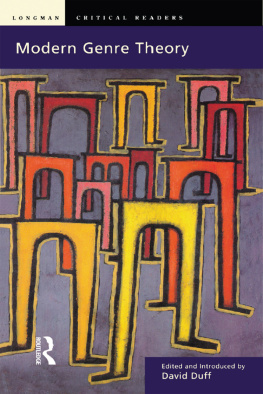
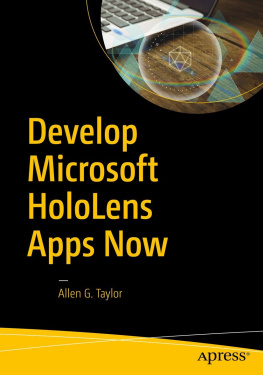
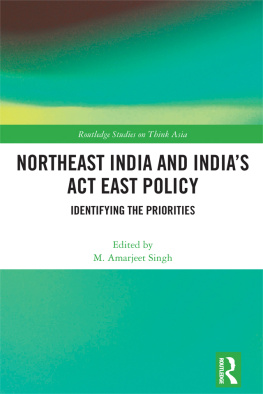
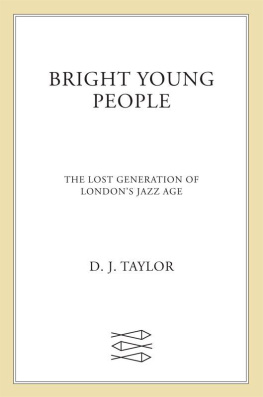
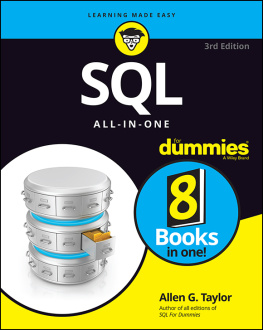
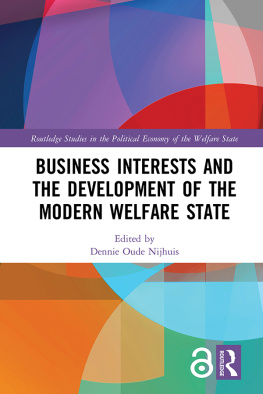
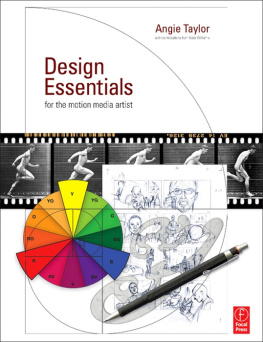
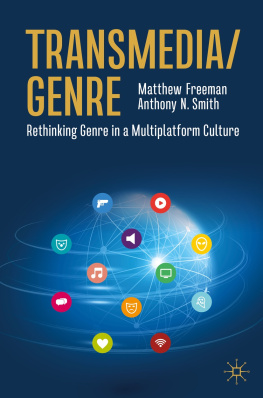

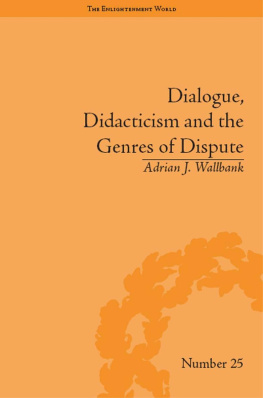
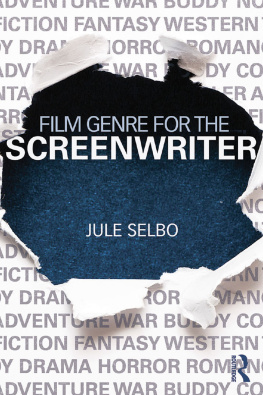
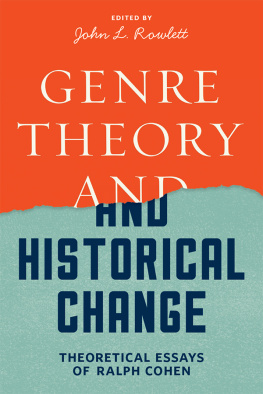
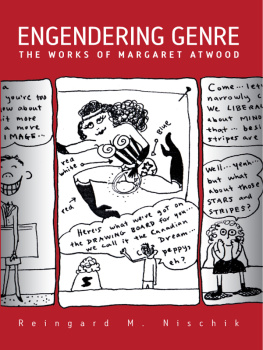

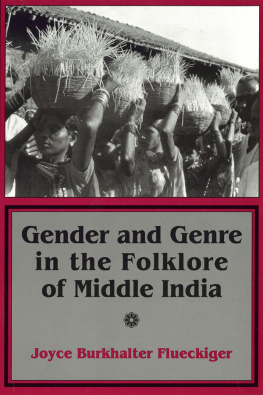
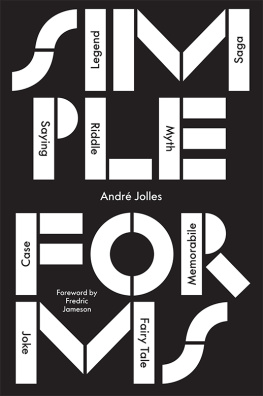
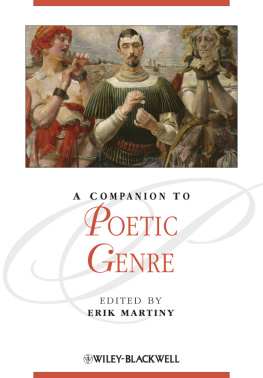
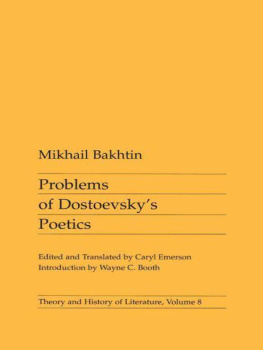

 /11
/11